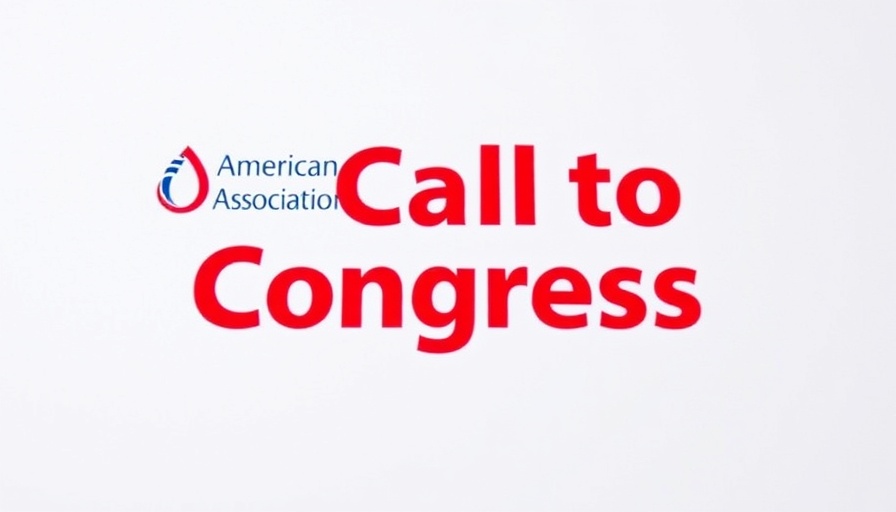
Advocating for Diabetes: The Importance of Collective Voices
The recent ADA Call to Congress 2025 exemplifies the critical role that collective advocacy plays in shaping diabetes-related policy. This event served as a platform for diabetic adults, healthcare professionals, and concerned citizens to unite their voices in support of vital diabetes research and healthcare accessibility. As participants shared their personal journeys with diabetes, the power of storytelling amplified the message that access to affordable care is not just a personal issue, but a public health imperative.
In ADA Call to Congress 2025, the discussion dives into the urgent need for unified advocacy in diabetes policy, exploring key insights that sparked deeper analysis on our end.
A Spotlight on Policy Priorities and Potential Change
The focal point of the 2025 congress was clear: advocate for funding and legislative support that will directly benefit individuals living with diabetes. This encompasses crucial areas such as medical research funding, affordable medication, and healthcare provision. The stories shared by advocates not only humanize the challenges faced by the diabetic community but underline the urgency of addressing these issues through appropriate legislative measures.
Building Connections: The Role of Healthcare Professionals
This gathering was equally significant for healthcare professionals, including diabetes nurses, physicians, and nutritionists. Their expertise bridges the gap between clinical care and policy advocacy. Healthcare providers play an indispensable role in educating patients about diabetes management and the need for systemic changes that ensure comprehensive care. By attending events like the ADA Call to Congress, these professionals can voice their insights to policymakers, essentially acting as liaisons between patients and those in power.
Future Predictions: A Collaborative Approach to Diabetes Research
As the landscape of diabetes treatment evolves, collaborative approaches in research and policy are more important than ever. Future advocacy could lead to increased funding for innovative treatments and better access to specialized care for pre-diabetic individuals. With ongoing discoveries in nutrition science and health technology, the potential for improving health outcomes is immense—if adequately supported by policy changes and research funding.
Common Misconceptions About Diabetes Advocacy
Despite the progress made, there remain misconceptions surrounding diabetes advocacy. One prevailing myth is that individual stories alone can lead to substantial change without the backing of collective action. However, as highlighted in the ADA Call to Congress, systemic change requires unified voices to create pressure for policy reform. Furthermore, there's often a misunderstanding regarding the distinctions between diabetes types, which can affect advocacy approaches, making it crucial for advocates to be educated and clear about their message.
Actionable Insights: What You Can Do
Individuals, regardless of their connection to diabetes, have a role to play in advocacy. Engagement can be as simple as voicing concerns to local representatives, participating in community health initiatives, or supporting diabetes-related organizations. Attending events similar to the ADA Call to Congress serves as a reminder that your voice can mobilize change—be it for funding, healthcare accessibility, or informed nutrition practices.
Conclusion: A Call to Action
The importance of advocacy cannot be overstated, especially in the face of the life-altering challenges posed by diabetes. Every interaction, each story shared at events like the ADA Call to Congress, contributes to a larger narrative that can gently nudge policymakers towards much-needed reforms. Now is the time to take advantage of this momentum. Join or support advocacy efforts, participate in community forums, and rest assured that together, collective voices can drive meaningful change for those affected by diabetes.
 Add Row
Add Row  Add
Add 




Write A Comment